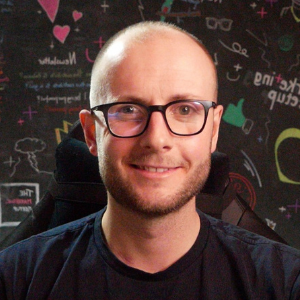
Some of the things I have learned from incredible marketing minds.
I’ll admit it, I’m a thief. A thief of ideas. I take them from wherever I can in the world, process them, and make them my own (while crediting people, of course!).
And the best ideas come from the people who inspire me on the internet, and (one day) in person.
I’m fortunate that through my role heading up The Marketing Meetup I can listen to these people every week in our marketing events.
So, here are some of the ideas I have stolen from others, which I think will help you with your marketing journey.
Mark Ritson – Diagnosis, strategy, tactics. Delivered in ‘On the Contrary’.
One of the challenges many companies face when engaging in marketing is that they head straight to the tactics stage. I.e. the shiny bit at the end everyone speaks about. Marketing tactics are the things you hear about all the time: social media, SEO, email marketing etc.
While these tactics have their importance in the marketing mix – they’re by far not the entirety of our craft.
Mark Ritson illuminates this concept in the best way I’ve seen through his ‘Diagnosis, Strategy, Tactics’ model.
Simply put, Ritson divides marketing into three stages – each of which deserves equal attention.
The crucial lessons from the model some through the diagnosis and strategy sections. Here, you are truly looking to understand the market you’re operating in (ever wonder why it’s called marketing!?), and then the messaging and customers your product will align to.
Relevant to many tech companies around the world – this also solves a problem where more ‘product-led’ organisations head into the market with a great product, but no idea if the world needs it, or how to convey the benefit to the customer.
The full video is very worthy of a watch!
Seth Godin – It’s all about the customer. In his book ‘This is Marketing’.
Seth Godin is one of the Godfathers of marketing, and his most recent book, This is Marketing, stretches his marketing muscles.
The first half of the book is the one I really recommend. Again and again, Seth drives home the importance of knowing your customer and serving them beyond any other.
One of my personal bugbears with how some folks approach marketing is to say their target audience is ‘everyone’. Seth encourages the reader to focus in on the smallest audience possible. Through this method, you get to know the people you are serving in intimate detail. And through this you can create a product, an experience, and a price to match the needs and experiences of your customer base.
April Dunford – Positioning matters. This talk on positioning.
Our products compete in frightfully competitive spaces.
Part of the model that Ritson proposes includes ‘positioning’ – or, “how your product is best in the world at providing some sort of value to a special set or segment of customers who care about that specific value you provide them with”.
Fundamentally, good positioning can take the same product and present it in a way most relevant for your audience. The wrong positioning with the same product can lead to commercial failure, but with the opposite true for positioning that nails what the customer is looking for.
In this talk, April gives the example of ‘cake on a stick’ vs a ‘cake pop’. One sounds useless – you don’t need cake on a stick: cake on a plate is fine! But by changing the name to a ‘cake pop’, you start to position it as a competitor to lolly pops and ice creams. Same product, different way of looking at it. We know which one we would buy…
Rory Sutherland – Look for the magic. In his book, Alchemy.
One of the final lessons I adore is from the wonderful Rory Sutherland.
So often in the world of marketing we look for the binary answers. “X produced Y with a ZZ% YoY increase. We should therefore do more of this because the numbers say so”.
However, marketing remains part art, part science. And with art, there has to be allowances for the illogical… the magical.
Rory’s book, Alchemy, is basically a celebration of all the examples you could possibly want of this in action. But among my favourites is the Magic Castle Hotel in Los Angeles.
The Magic Castle Hotel is essentially a standard hotel in many ways. The rooms are average. The pool is fine. But, it does have one extra point of magic: a popsicle hotline.
This very special phone sits by the side of the pool in the hotel. Pick up the hotline, and any child will have a popsicle delivered to them there and then. The result? The Magic Castle Hotel – beyond any other point of ‘averageness’ excels in creating a moment of magic and now sits at number 7 in all of California for hotels on TripAdvisor. An enviable spot which will absolutely lead to commercial success.
To conclude…
From structures to customers to positioning to magic, these are just four examples of things I have learned from amazing marketing people. Seek them out!
Joe Glover will be joining the Accelerate Cambridge programme with his venture in January 2021.




Leave a Reply